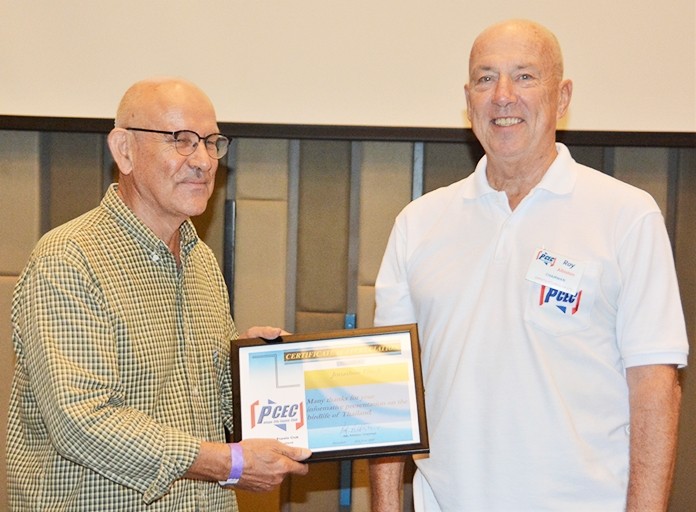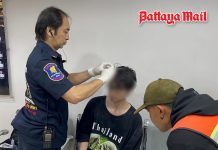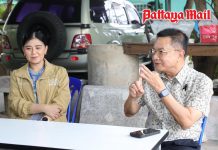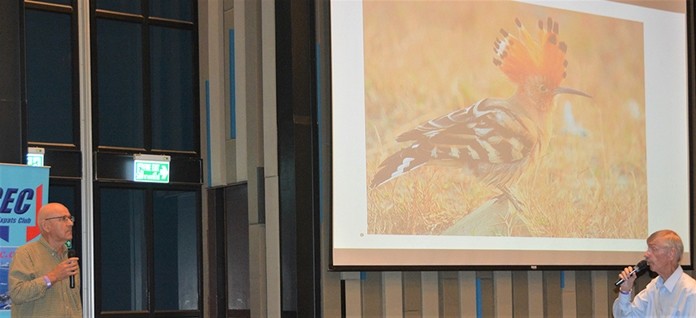
There were two speakers at the Pattaya City Expats Club meeting on Sunday, June 2. First up was Bud Dooley on the topic of “How to protect your electronic devices while traveling in Thailand.” Followed by the return of Jonathan Finch to acquaint everyone with the “Birdlife of Thailand.”
Bud Dooley is a very savvy man that knows all about cyber security from his years of working in the industry. Bud mentioned that his talk was driven by his recent experience of having his mobile phone stolen. As many of us do, in a hurry to pop into a store, he forgot a minute is enough for an opportunistic thief to make off with personal items. Which of us today can easily survive without our mobile phone? It is our link to everything in our life, banking, social media, emails, appointments, news outlets and a hundred more. As well as often storing our personal information and passwords, Bud mentioned that many people also store money, club cards, business cards and other important ongoing information.
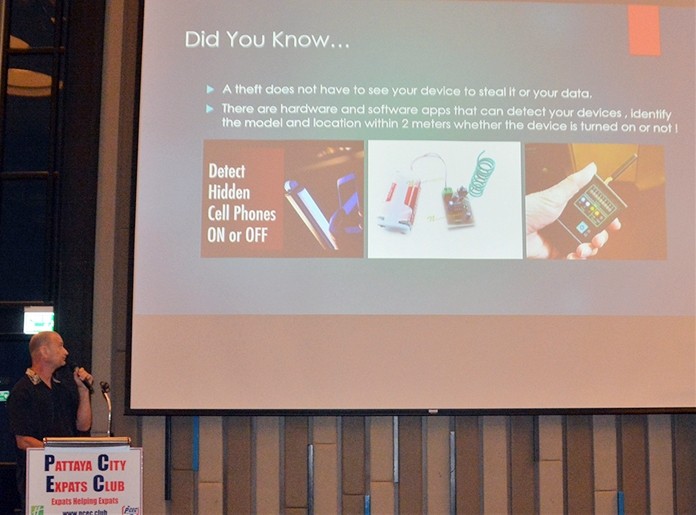
Bud explained that today it’s quite simple for thieves to have a device or download an app which pinpoints all the nearby phones and what type they are. In relating his experience, he said someone sitting at the entrance to the parking area using such an app or device could easily detect his high-end phone along with the fact it did not remove it from his bike when he entered the store. He then showed a video he obtained from the store’s CCTV camera so all could see the thief drive-up on his bike, pretend to park next to Bud’s bike, then removing the phone and driving off.
He stresses the first thing to do is to ensure you have a phone number on you or memorised once your own regular means of communication is gone. This enables you to find or borrow a phone to begin the process of tracking down the thief, or making safe your details. He did make a report to the police, but had to obtain the video himself and deliver it to them for them. Based on his experience, he wanted to provide some invaluable advice to others on how to protect their data in the event their electronic devices, such as smart phone or tablet are stolen.
His suggestions included: encrypt your devices’ storage by enabling it; install a comprehensive security suite on your device; regularly back up your info at least monthly; minimise what’s installed and clear memory regularly; restart every few days; periodically delete messages and logs; and run an antivirus scan regularly (be sure to install updates). Bud also suggests make good safety a habit; keep your phone in the same place always. But most of all BE AWARE of who and what is going on around you.
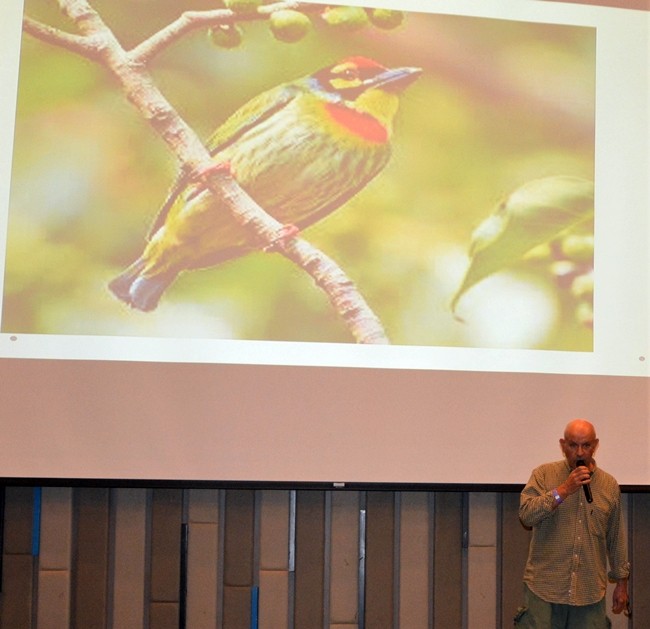
Next up, was Jonathan Finch, a committed ornithologist and long-time bird spotter. His love of birds began as a small child. He is unable to discover how this interest came about as no family or friends expressed such interest. Yet today, some sixty years later, his love of birds remains.
Jonathan showed slides of many birds found in this area of Pattaya and surrounding countries. The list for Thailand is enormous. As he pointed out, being connected to the mainland rather than an island such as the UK or New Zealand, helps maintain high numbers of birds. Many are brightly coloured; beautiful, quite a number are long legged wading birds. He spoke of clues to note when identifying breeds. He suggests first size, then colours, beaks, eyes and legs. These aspects being the easiest way to identify what you are seeing. Binoculars and a bird book are also necessary if you wish to seriously take up birdwatching. Once identified Johnathon marks them off in a special book, Robson’s book ‘Birds of South East Asia’. In this way he can keep track of what he’s spotted and where. There are some 1500 species to be found here. It seems clear more than casual observance is needed. It may well be necessary to venture into the countryside.
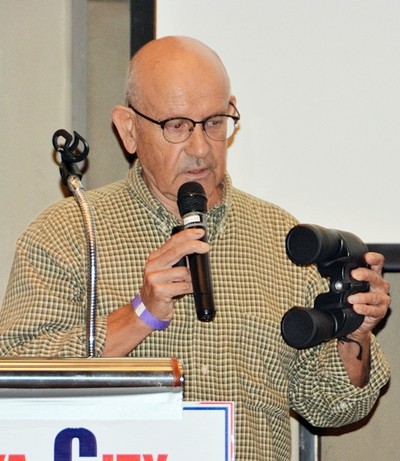
He finds, as many of us do that the natural habitat of wildlife is contracting. The expansion of people all too often comes at the expense of existing wildlife. Jonathan points out that here in Thailand the military do a necessary job of protecting their national heritage, especially in National parks. Sadly, in Cambodia from what he has seen, that does not seem to occur.
Obviously, he noted, that birds play an important part in the natural balance of world ecology and the ecosystem. Much more vital than merely keeping down the insect population. Johnathon stresses how important it is to realise how quickly their natural habitat is disappearing. To him he sees loving birds as loving nature, something to conserve. He feels to be alone in nature is akin to poetry, something he writes and feels strongly about. It was obvious to the audience that whatever drives Jonathan Finch in his often-solitary quest, his passion for birds shines through. Not only spotting, but understanding their often-complex lives, mating rituals and family groupings. He says to stand in the dawn mists to hear the Great Hornbills calling, is to enter a fabulous world of eerie magnitude. The sounds echo, the swoosh of those great wings over the mountain drop.
Jonathan has published almost a dozen books in the last few years, his books on birds and other topics can be found at Amazon and his website, visit: https://www.amazon.com/author/finch ; https://authorjonathanfinch.com ; https://www.amazon.com/TiedLives-Jonathan-Finch.
After the presentations, the MC updated everyone on upcoming events which was followed by the Open Forum where the audience can ask questions or make comments about expat living in Thailand especially Pattaya.
